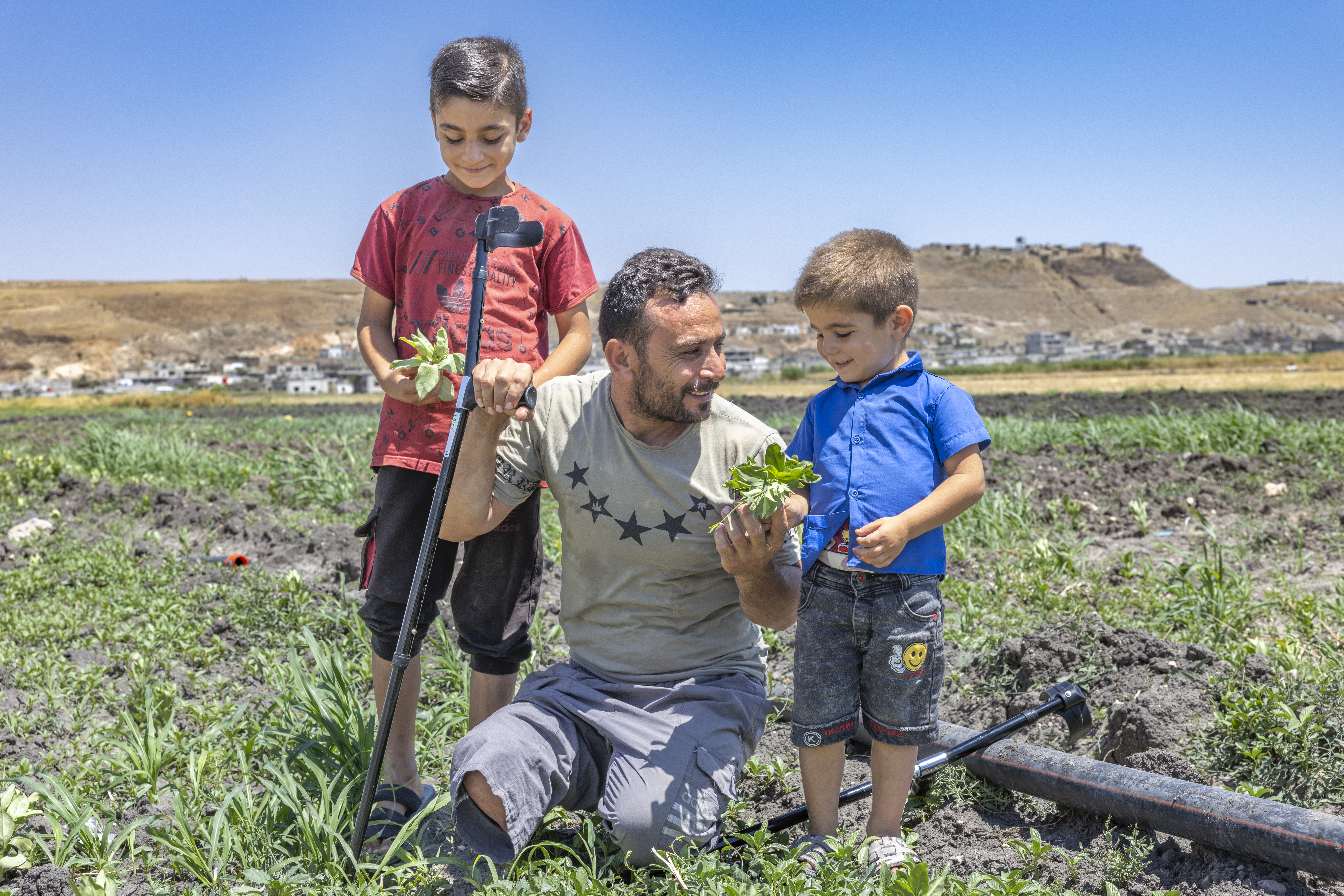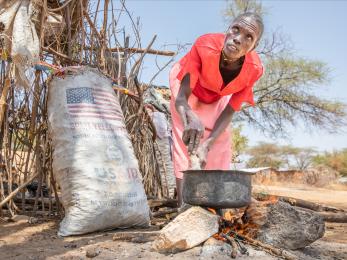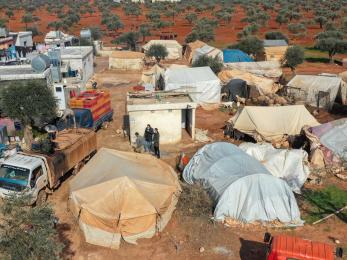Omar's vision: How war is shaping the next champions for peace
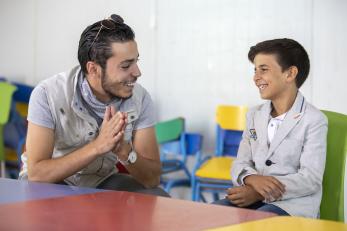
About 90 minutes outside Amman, Jordan, as the sparse desert leads to the Syrian border, the wire-strewn gates of Zaatari refugee camp emerge from the emptiness. Zaatari has the architecture of a temporary city, with caravans and tents lined up in grids, but it has the permanence of a place forced to remain by uncontrollable circumstances.
Markets line the main roads, selling everything from dresses to produce. Satellite dishes sprout from the roofs of nearly every caravan. About 80,000 people live here, many of whom have been here since the beginning of the Syrian war.
To be a youth in camps like Zaatari and Azraq — another major camp an hour away — is to have your entire life put on hold. It means being out of school, away from friends, and often separated from family.
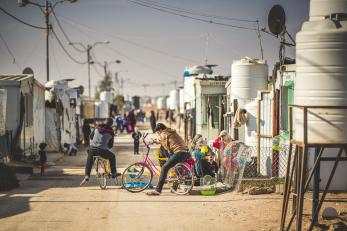
Youth in these camps have two choices: to let the stress of a life in crisis put them at risk of making harmful and dangerous choices, or to focus on building a future of peace and stability. They can be a source of the bold solutions the world so desperately needs.
And we’re helping them foster that brighter future.
In Zaatari, Azraq, and several host communities, Mercy Corps operates what are called Makani Centers — meaning “my space” in Arabic. These centers are part informal school, part gym, and part social center.
Designed to serve boys in the morning and girls in the afternoon, the centers draw on the enthusiasm and expertise of adult Syrian refugees to provide academic support, teach skills like English and computers, and coach youth in life skills like communication, goal setting, and teamwork. The centers also offer popular physical education and exercise programs, including soccer, weightlifting, wrestling, gymnastics and aerobics.
These programs give power back to people — adults and children alike — who have been at the mercy of conflict and changing circumstances for so long.
Omar Al-Tal is a Senior Field Coordinator for our child protection project in Jordan. These centers, he says, are not just important for young people’s physical and mental health — they give them a sense that they all still have a future.
“When adolescents and youth have a vision they will dedicate their life to achieving it,” he says. “So our role basically is to help them build that vision, to help them to know themselves more, and to help them know the value that they have.
“The main point of our work is to stand in this point and to try to support them — to take all of this pressure and all of the trauma that they have and turn it to positive attitudes, to positive behaviors.”
The moment to reach these youth is now, Al-Tal says, when young men and women stand at a crossroads. If the right interventions reach them at the right time, then something amazing can happen: These years of conflict and disruption will forge a future generation that stands for peace.
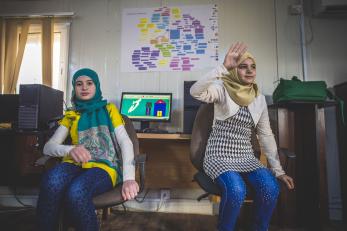
“If we went back and looked at people who were leaders in peace and justice and in improving others’ lives — like Gandhi, Nelson Mandela, and Martin Luther King — all of those people experienced hardship in their lives. Those hardships and experiences made them unique and made their voices heard when they talked about peace, when they talked about justice.
“My personal belief is that at some point a leader will show up for this world talking about peace, talking about children, talking about justice, and talking about security and safety, and maybe he is one of our beneficiaries now. Maybe he (she) is around us now. He (She) is someone who is living in silence, he (she) is someone who is perceiving things, he (she) is someone who is learning, and he (she) will give back all of these things to the world again. It’s going to happen.”
So much is possible when our community of humanitarians joins together to take on the world’s toughest challenges.
As the number of refugees in need keeps increasing, your support will allow us do even more to show up, speak up and stand up for people around the world.
